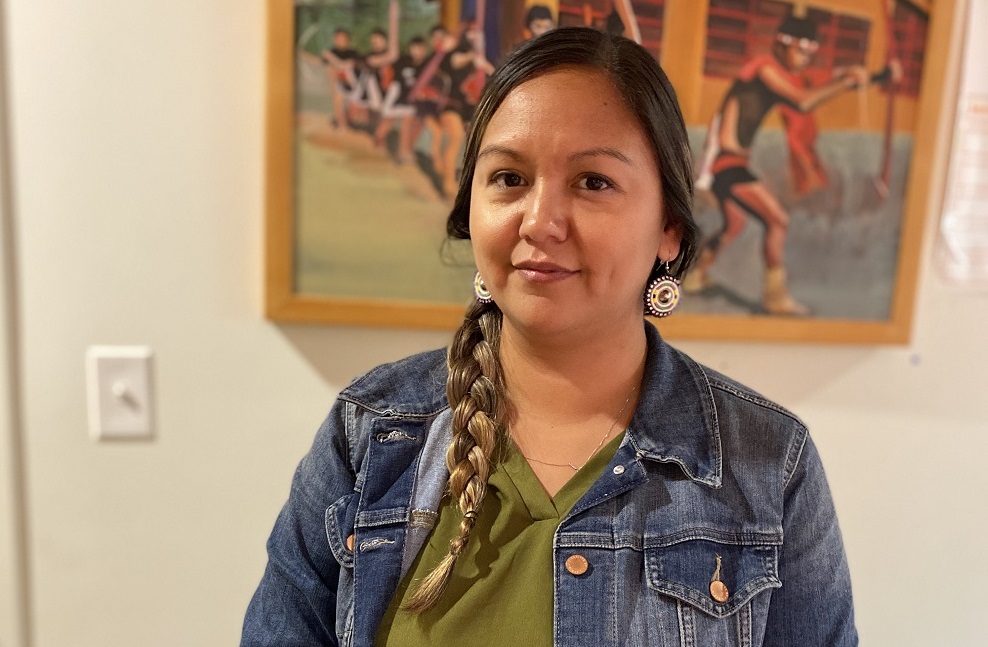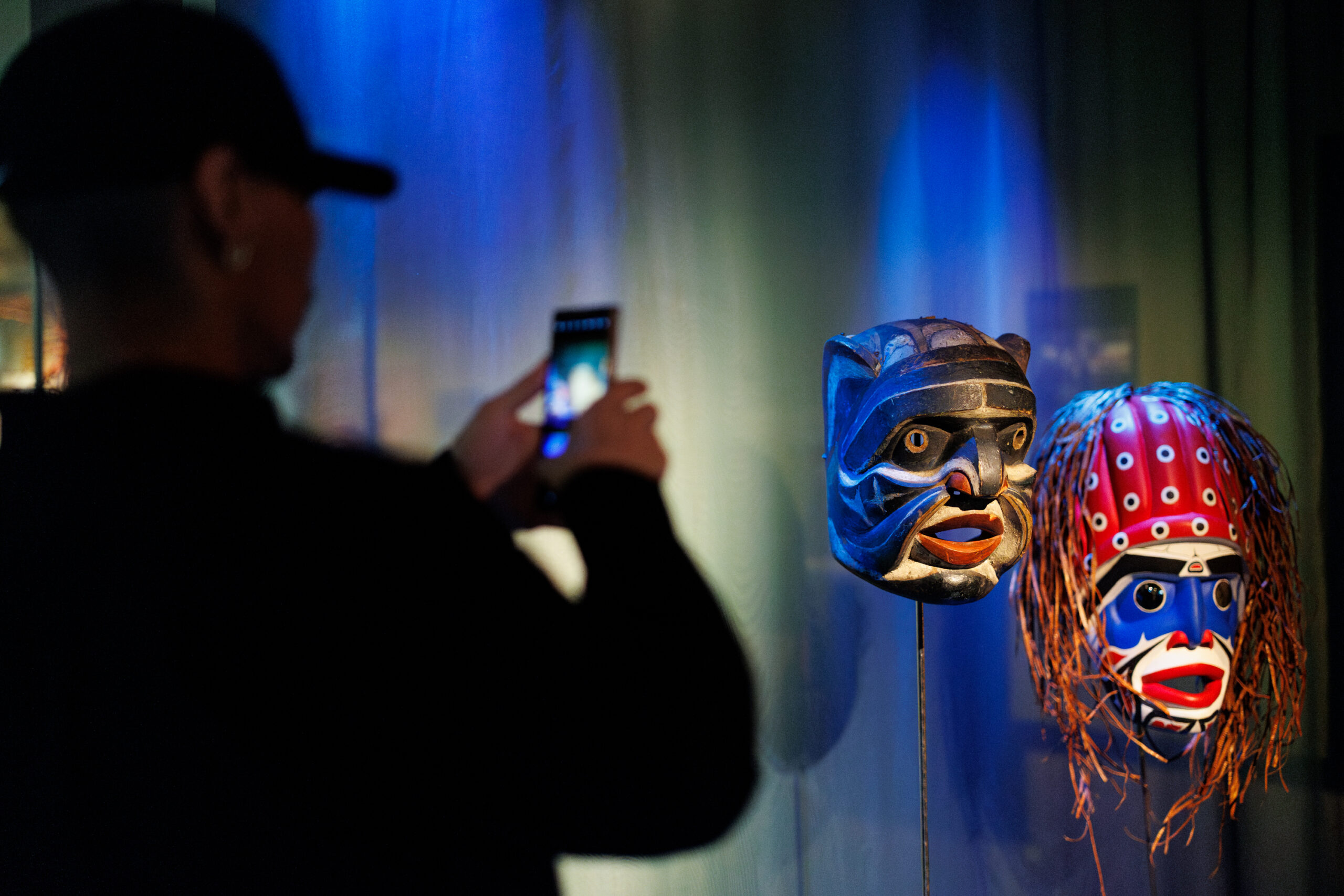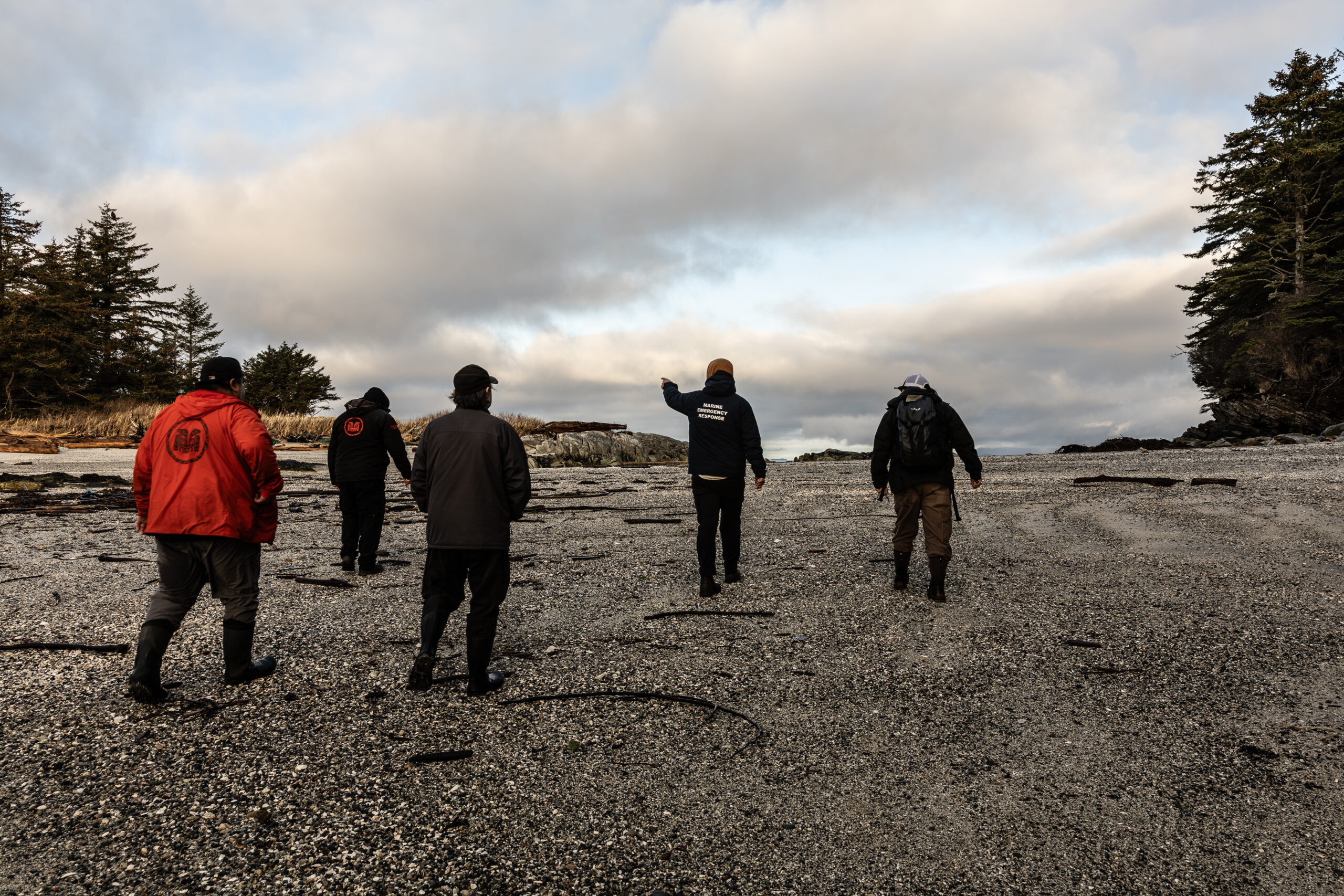A year into her role as Director of Health for the Nuxalk Nation, Kirsten Milton shares her thoughts on her leadership role as a woman in the Bella Coola Valley and on being a health leader during COVID-19. Kirsten is in her first term as Nuxalk Nation Councillor and brings ten years’ experience as a Licensed Practical Nurse (LPN) to her role as Director of Emergency Operations.
WHY DID YOU DECIDE TO TAKE ON A HEALTHCARE LEADERSHIP ROLE IN YOUR COMMUNITY?
Because of the respect I was always taught to have for my elders, my community, my leadership. My grandfather was a Hereditary Chief and very traditional. He held high respect in the community. He always paraded me around with him, so I’ve always been very comfortable speaking in my community and with my elders. I think that really helped me advance in my health career.
Whenever an emergency came up, I was always identified as someone who could hold it together, so I was encouraged to go into the health field. I’ve been an LPN for 10 years. I stepped away from that because I wanted to be more involved in supporting the community and the elders and to focus on the health programming I developed in my career.
WHAT IS ONE OF THE BIG CHALLENGES YOUR COMMUNITY IS FACING IN HEALTHCARE?
Home support has been identified as one of the biggest challenges. As our population ages, what are some of the
things elders need to get through their daily lives? That’s become really difficult under COVID-19 conditions. One thing we used to have is an elders’ luncheon. Under COVID, we realized we couldn’t just stop this program, so we decided to do a meals-on-wheels delivery program. Now we find the elders are waiting at their door for their weekly meal. We’re excited we can continue this program because so many things had to stop in our community.
WHAT ACCOMPLISHMENT ARE YOU PROUD OF IN YOUR WORK?
We identified that there is a big service gap for First Nations living on reserve. Through funding bodies like FNHA [First Nations Health Authority], we were selected to have our own primary care clinic. It was months of data collection and figuring out where on the Central Coast it would make sense. It will be a big game changer for the Nation. Another thing I’ve helped take the lead on is funding for an elders’ village. The new housing will have 11 units and a space for a traditional gathering place. Since most First Nations don’t have the opportunity for direct support, we end up having to send people as far away as Merritt or Williams Lake for long-term care. That’s not First Nations culture – we don’t send our elders away. We’re hoping to break ground this fall and are working with a First Nations architect from up north.
WHY IS FIRST NATIONS WOMEN’S LEADERSHIP IMPORTANT IN CFN COMMUNITIES?
When you go into any cultural or traditional ceremony in our community, it’s often opened by a prayer by one of the most respected elders. And she is the one who inspires the people to do the work that we do. In our work, we always make sure we have traditional support right next to us guiding our process. I feel that in places where cultural guidance isn’t a part of it, emotions really cloud the process. Traditional women keep us focused and help us in our work.
WHO INSPIRED YOU AND WHY?
Definitely the women in my family. The message they have always given me growing up was – always support your family and community. People in the community always tell me how much my grandparents did for the community. When I feel down and maybe it’s showing in my face, people come up to me and say your grandparents would be extremely proud of you right now. I love that. They never faltered in who they were as people.
AS A WOMAN, WHAT HAS BEEN THE MOST SIGNIFICANT BARRIER IN YOUR CAREER?
Definitely confidence. That’s something you have to build. It’s not something you can just take on in a day. I think I’m in the perfect position and time in my life to do the work that has to be done and I have the confidence to do it. I find that I have to instill that confidence in my staff, in my coworkers, in my clients. When I hire new women staff, I think, “You are perfect for this position” and they say “Oh, don’t look at me, I can’t do this.” They almost have a panic attack. I find the women I work with, we boost each other up – we have to do that for each other.
WHAT ADVICE WOULD YOU GIVE TO COMING GENERATIONS OF FEMALE LEADERS?
I think the biggest mistake you can make in a leadership role is that you know it all. It makes a big difference
if you are willing to listen. I go to the women in my building when I’m stuck on a problem. It’s scary if you have to go
through a big decision alone. I tell my staff we’re doing this together as a team. I make that clear when we’re starting a new program, “Hey I don’t always know all the answers, this is brand new. If you feel I am making a mistake, please correct me.
WHAT IS ONE OF THE BIGGEST CHALLENGES FOR THE NEXT GENERATION OF WOMEN LEADERS?
The technology really separates you from being grounded in your culture and your traditions. I think back to when I was a child, when you were at a potlatch you were engaged in what you were doing at the potlatch. At the same time, the next generation will be able to use the technology to its advantage. It will be a challenge to utilize those devices that will be of use to them but also learn how to work without them.
WHO INSPIRES YOU TO CARRY ON IN DIFFICULT TIMES?
My children. I’m worried about the future and making sure they are safe. It’s easy for anyone to shut down and
let the leaders deal with the problems at hand. But what am I actively doing to ensure their health will be protected in the future? Our community has faced a lot of loss with drug use and suicide. How can I ensure my children don’t get into that mindspace of mental health issues without supports in the community? It really scares me to know that something could happen to my children like that and there weren’t things available to them.
WHAT ARE YOUR ASPIRATIONS FOR YOUR COMMUNITY?
There’s a lot of racism in our valley and it’s really hard to live with. I’ve experienced it all my life – in Kamloops,
living here, and it really stops our people from advancing ourselves. COVID-19 has forced all the leadership in the Bella Coola Valley to come together to discuss how can we address this issue together. Prior to this we were just starting the conversation of ‘how do we work together’ with all the agencies. Now, with COVID, we’re all at the same table to figure this out.
Kirsten received her traditional name of “Syut” Killer Whale from her grandfather – a name she shares with her mother and other women in her family. Raised by her grandparents, Kirsten is the oldest of three children and is married to her high school sweetheart with three children of her own.


